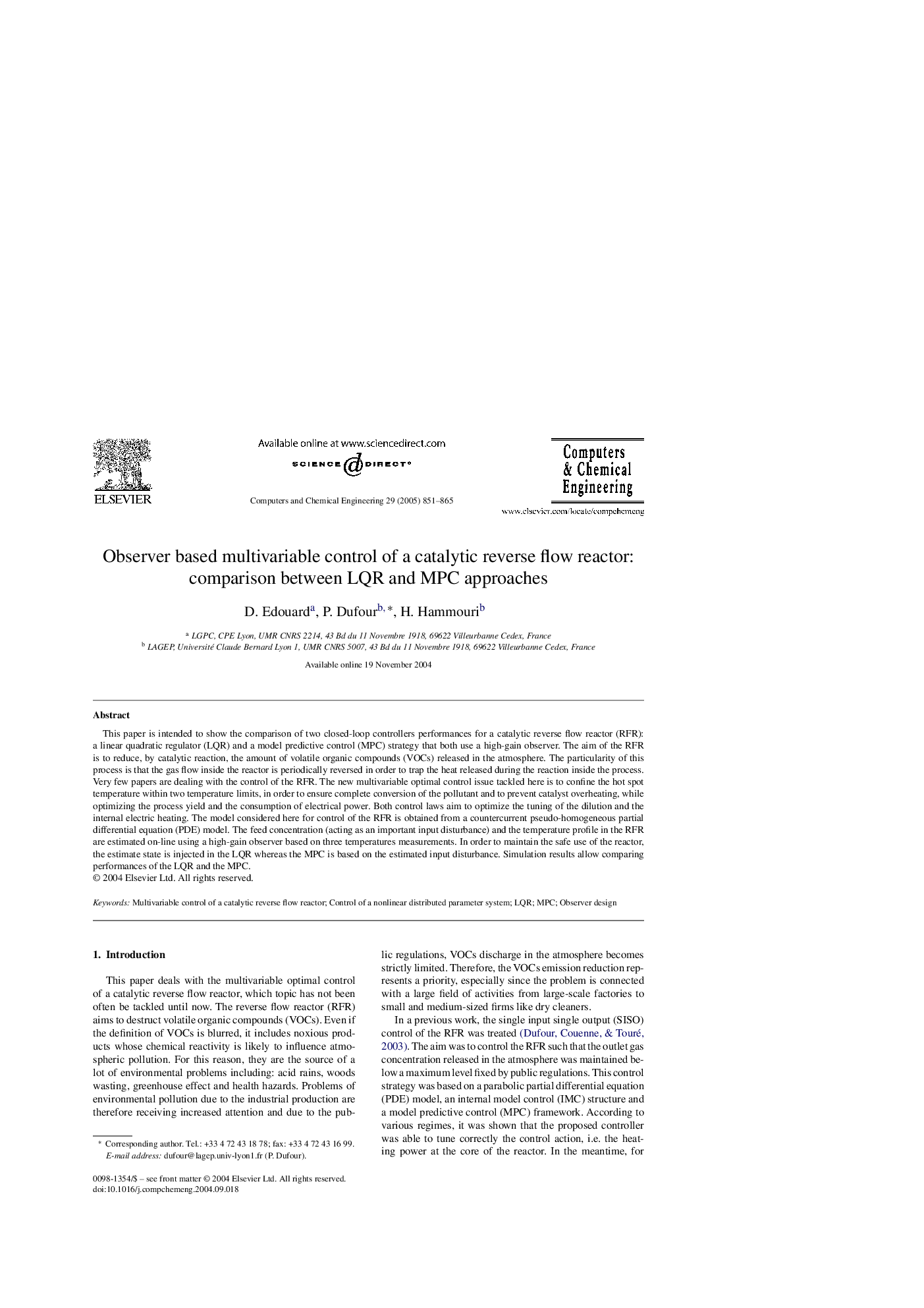| کد مقاله | کد نشریه | سال انتشار | مقاله انگلیسی | نسخه تمام متن |
|---|---|---|---|---|
| 10265909 | 458652 | 2005 | 15 صفحه PDF | دانلود رایگان |
عنوان انگلیسی مقاله ISI
Observer based multivariable control of a catalytic reverse flow reactor: comparison between LQR and MPC approaches
دانلود مقاله + سفارش ترجمه
دانلود مقاله ISI انگلیسی
رایگان برای ایرانیان
کلمات کلیدی
موضوعات مرتبط
مهندسی و علوم پایه
مهندسی شیمی
مهندسی شیمی (عمومی)
پیش نمایش صفحه اول مقاله

چکیده انگلیسی
This paper is intended to show the comparison of two closed-loop controllers performances for a catalytic reverse flow reactor (RFR): a linear quadratic regulator (LQR) and a model predictive control (MPC) strategy that both use a high-gain observer. The aim of the RFR is to reduce, by catalytic reaction, the amount of volatile organic compounds (VOCs) released in the atmosphere. The particularity of this process is that the gas flow inside the reactor is periodically reversed in order to trap the heat released during the reaction inside the process. Very few papers are dealing with the control of the RFR. The new multivariable optimal control issue tackled here is to confine the hot spot temperature within two temperature limits, in order to ensure complete conversion of the pollutant and to prevent catalyst overheating, while optimizing the process yield and the consumption of electrical power. Both control laws aim to optimize the tuning of the dilution and the internal electric heating. The model considered here for control of the RFR is obtained from a countercurrent pseudo-homogeneous partial differential equation (PDE) model. The feed concentration (acting as an important input disturbance) and the temperature profile in the RFR are estimated on-line using a high-gain observer based on three temperatures measurements. In order to maintain the safe use of the reactor, the estimate state is injected in the LQR whereas the MPC is based on the estimated input disturbance. Simulation results allow comparing performances of the LQR and the MPC.
ناشر
Database: Elsevier - ScienceDirect (ساینس دایرکت)
Journal: Computers & Chemical Engineering - Volume 29, Issue 4, 15 March 2005, Pages 851-865
Journal: Computers & Chemical Engineering - Volume 29, Issue 4, 15 March 2005, Pages 851-865
نویسندگان
D. Edouard, P. Dufour, H. Hammouri,